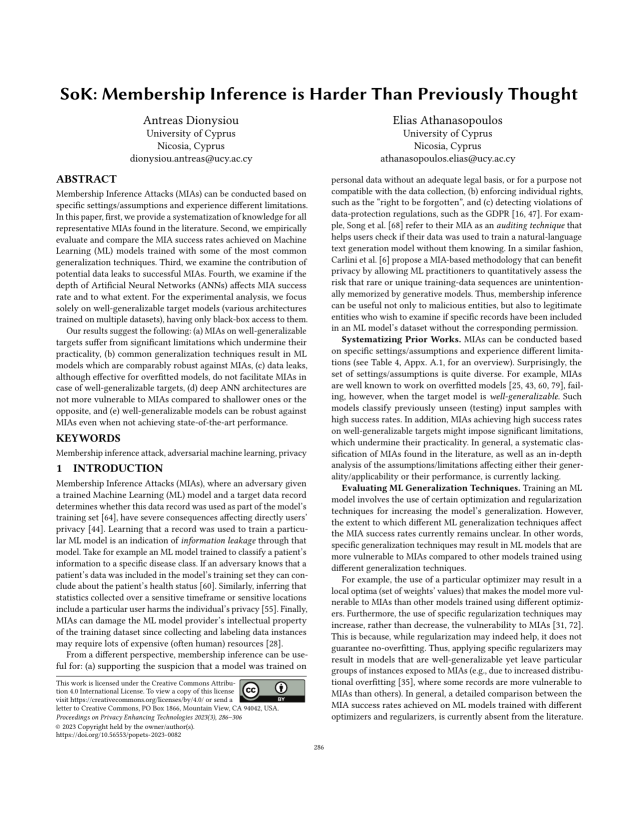SoK: Membership Inference is Harder Than Previously Thought
Authors: Antreas Dionysiou (University of Cyprus), Elias Athanasopoulos (University of Cyprus)
Volume: 2023
Issue: 3
Pages: 286–306
DOI: https://doi.org/10.56553/popets-2023-0082
Abstract: Membership Inference Attacks (MIAs) can be conducted based on specific settings/assumptions and experience different limitations. In this paper, first, we provide a systematization of knowledge for all representative MIAs found in the literature. Second, we empirically evaluate and compare the MIA success rates achieved on Machine Learning (ML) models trained with some of the most common generalization techniques. Third, we examine the contribution of potential data leaks to successful MIAs. Fourth, we examine if the depth of Artificial Neural Networks (ANNs) affects MIA success rate and to what extent. For the experimental analysis, we focus solely on well-generalizable target models (various architectures trained on multiple datasets), having only black-box access to them. Our results suggest the following: (a) MIAs on well-generalizable targets suffer from significant limitations which undermine their practicality, (b) common generalization techniques result in ML models which are comparably robust against MIAs, (c) data leaks, although effective for overfitted models, do not facilitate MIAs in case of well-generalizable targets, (d) deep ANN architectures are not more vulnerable to MIAs compared to shallower ones or the opposite, and (e) well-generalizable models can be robust against MIAs even when not achieving state-of-the-art performance.
Keywords: membership inference attack, adversarial machine learning, privacy
Copyright in PoPETs articles are held by their authors. This article is published under a Creative Commons Attribution 4.0 license.


